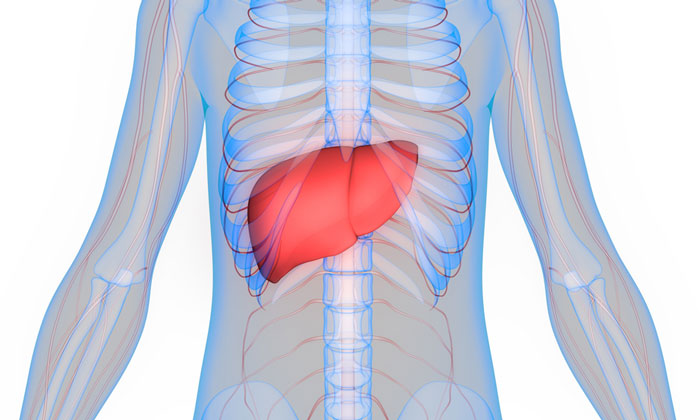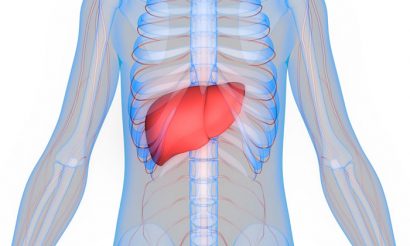SIRT is better tolerated than sorafenib, but doesn’t increase overall survival in HCC
Posted: 28 April 2017 | | No comments yet
Results of the SARAH trial demonstrate that SIRT resulted in median overall survival (OS) of 8.0 months compared to 9.9 months with sorafenib (p=0.179)…


Results of the SARAH trial demonstrate that SIRT resulted in median overall survival (OS) of 8.0 months compared to 9.9 months with sorafenib (p=0.179), in patients with locally advanced and inoperable hepatocellular carcinoma (HCC).


The trial further demonstrated that the cumulative incidence of radiologic progression in the liver as the first event was significantly lower in the SIRT group compared to the sorafenib group (p=0.014), and the response rate was significantly higher in the SIRT group compared to the sorafenib group (19.0% vs 11.6%, p=0.042). Both the side-effect profile and quality of life scores were significantly better over time in the SIRT group compared to the sorafenib group (p=0.005).
Liver cancer, or HCC, is the second most common cause of cancer-related deaths worldwide. HCC represents more than 90% of primary liver cancers and is a major global health problem. The prognosis for patients with advanced liver cancer is poor, and the multikinase inhibitor, sorafenib, is the only approved first-line systemic treatment.
If patients are not tolerant or have contraindications for sorafenib therapy, there is currently no standard of care and patients lack effective treatment options. SIRT with yttrium-90 (Y-90) resin microspheres has shown promising anti-tumour results with a safe profile; further trials are needed to establish this treatment as a viable option for patients.
“Patients with advanced or inoperable hepatocellular carcinoma have a poor prognosis, often with underlying cirrhosis, and the treatment option currently available, sorafenib, has a high level of toxicity. As cohort studies have demonstrated the efficacy of SIRT with Y-90 resin microspheres, we set out to compare the efficacy of this treatment versus the current standard of care,” said Prof Valérie Vilgrain, Hôpital Beaujon Service de Radiologie.
“While SIRT demonstrated significantly reduced side effects, better quality of life, higher response rates and more effectively controlled tumour progression in the liver, the overall survival of patients was not higher than in the sorafenib group. Nonetheless, this study provides evidence that SIRT may be a better-tolerated alternative for managing this complex and difficult-to-treat disease, deserving further evaluation.”
Study layout
The SARAH trial was a randomised, controlled, open-label, multicentre investigator initiated Phase 3 trial. Patients with locally advanced or inoperable HCC, who did not respond to 2 other treatments or had two failed rounds of transarterial chemoembolisation, were randomised to SIRT with Y-90 resin microspheres, or oral sorafenib 400 mg twice daily.
Endpoints
The primary endpoint of the study was OS and secondary endpoints included progression-free survival (PFS), time to radiological progression at any site and in the liver as the first event, tumour response, quality of life, and safety and toxicity.
There were 459 patients from 25 French clinical centres included in the study, 237 of whom received SIRT. Median PFS was 4.1 months and 3.7 months in the SIRT and sorafenib groups, respectively (p=0.765). Cumulative incidence of radiological progression at any site did not differ in either group (p=0.256). Overall, there were 1,297 and 2,837 treatment-related adverse events (AEs) including 230 and 411 grade ≥3, in the SIRT and sorafenib groups, respectively.
The number of patients with at least one treatment-related adverse event was 173 (76.5%) and 203 (94.0%), (p<0.001), including 92 (40.7%) and 136 (63.0%) grade ≥3 adverse events, (p<0.001), in the SIRT and sorafenib groups, respectively. Quality of life, assessed using the Global Health Status scale of the EORTC QLQ-C30 questionnaire, was significantly better in patients who received SIRT compared to the sorafenib group (p=0.005), an advantage that tended to increase with time (p=0.045).
“The SARAH trial is the first reported randomised controlled trial evaluating the survival benefit of SIRT in locally advanced HCC compared to sorafenib. SIRT was found to be safe, but regrettably the study failed meet the primary endpoint and SIRT did not show an overall survival superior to sorafenib. Further trials are needed to establish this treatment as a viable option for patients,”
said Prof Alejandro Forner, BCLC group, Liver Unit, Hospital Clinic Barcelona, Spain and EASL Governing Board Member.




